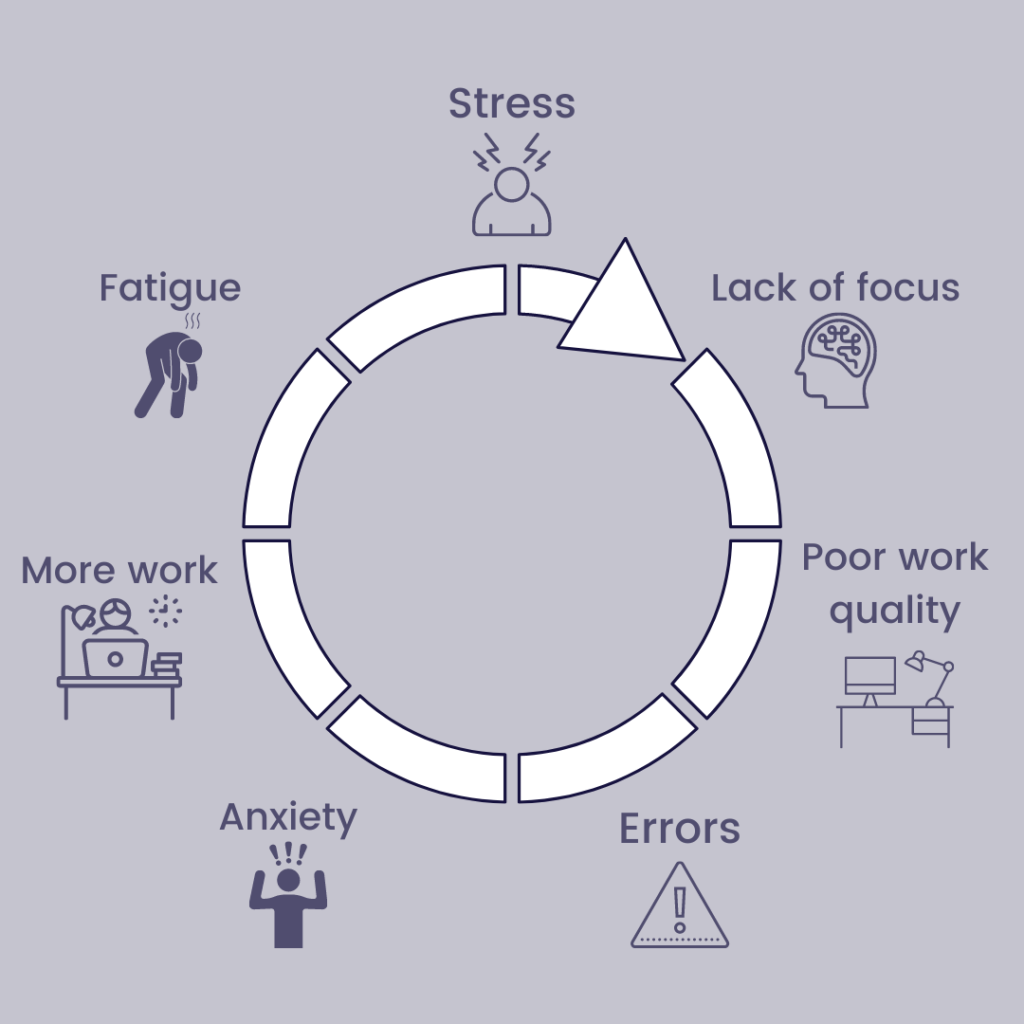Feeling stressed out? Chronic stress signs, symptoms, and management

Constantly feeling stressed out? Here are the signs and symptoms of chronic stress, and what you can do to manage your stress and feel better
Stress is a natural part of our lives, and in healthy amounts, stress can help us trigger the “flight or fight” response and avoid dangerous situations—like getting cornered by a lion. However, in today’s world, most of our stressors come from things like work, family, relationships, and school – not wild animals. So it’s important to avoid chronic stress, or a prolonged stress response in the body, as staying in “flight or fight” mode for long periods of time can have devastating effects on the body.
What drives chronic stress?
In moderation, the body’s response to stress is healthy – it helps us avoid (or fight) aggressors and dangerous predators that could threaten our lives. However, in today’s world it’s much more likely that stress is contributing to poor health. Generally, when a stressor (such as a tight deadline or a public speaking engagement) has passed, our body’s flight-or-fight response is turned off, and our hormones go back to normal. But, so many people these days constantly feel under attack – perhaps from ongoing deadlines and ever-increasing job demands – and their bodies stay in a stress-induced state. Prolonged stress can cause many other mental and physical issues – most commonly chronic fatigue and anxiety.

What are the effects of long-term stress?
Long-term activation of the stress-response system and overexposure to cortisol and other stress hormones can disrupt almost all your body’s processes. This includes impacts on the muscles, respiratory system, cardiovascular system, endocrine, and gastrointestinal health. This can lead to the development of health problems such as:
- Anxiety
- Depression
- Digestive problems (eg, heartburn, bloating, nausea, gas, etc.)
- Headaches
- Heart disease
- Sleep problems
- Fatigue
- Weight gain
- Memory and concentration impairment
- Muscle tension and pain
Chronic stress is also pro-inflammatory, (meaning your body is more likely to experience inflammation), is a key contributor to developing leaky gut, and is responsible for decreasing sex hormones and brain neurotransmitters. If you’re in a constant state of “fight or flight” your body stops doing things that are considered non-essential (like preparing for sex, proper digestion, and reducing inflammation).

What are the signs of chronic stress?
According to Dr. Markyia Nichols, you will likely experience three stages of stress if you are chronically stressed out:
Stage 1: Acute Stress
You may experience one or more of the following symptoms in the acute stress stage:
- Heart palpitations
- Difficulty breathing
- Chest pain
- Headache
- Stomach pain
- Nausea
- Sweating
Stage 2: Tired but Wired
In this stage, the body is exhausted but is also getting used to staying in a stress-induced state, so you are tired but can’t relax or fall asleep easily. You may experience:
- Irritability
- Fatigue
- Headaches
- Difficulty concentrating
- Disorganized thoughts
- Difficulty sleeping
- Digestive problems
- Changes in appetite
Stage 3: Adrenal Burnout
Your body has reached its limit in this final stage, and is beginning to break down. If you have reached this stage, you probably have noticed:
- Fatigue
- Body aches
- Unexplained weight loss
- Low blood pressure
- Lightheadedness
- Loss of body hair

How to combat and manage chronic stress
If you know you are experiencing chronic stress, it’s time to do something about it. Remember, always talk with your doctor and create a plan together with your physician before making any significant changes in your lifestyle.
In the meantime, here are some strategies you can use to combat chronic stress and start feeling better:
- Focus on breathing. Slow, steady, deep breathing can signal the brain that it’s okay to relax. Intentionally practice a breathing exercise when you are feeling stressed out.
- Eat well. A balanced diet free from empty calories and excess sugars promotes a healthy gut, which can lead to better overall health. What’s more, about 90% of the body’s serotonin (one of our feel-good hormones) is produced in the gut.
- Exercise regularly. Exercising not only promotes the production of good cholesterol to protect the heart and cardiovascular system, but it also releases the brain’s feel-good neurotransmitters called endorphins to improve your mood.
- Get professional help. Work with a team of doctors, dieticians, and health coaches to reverse your chronic stress and related conditions. See how Ciba Health can help you.


